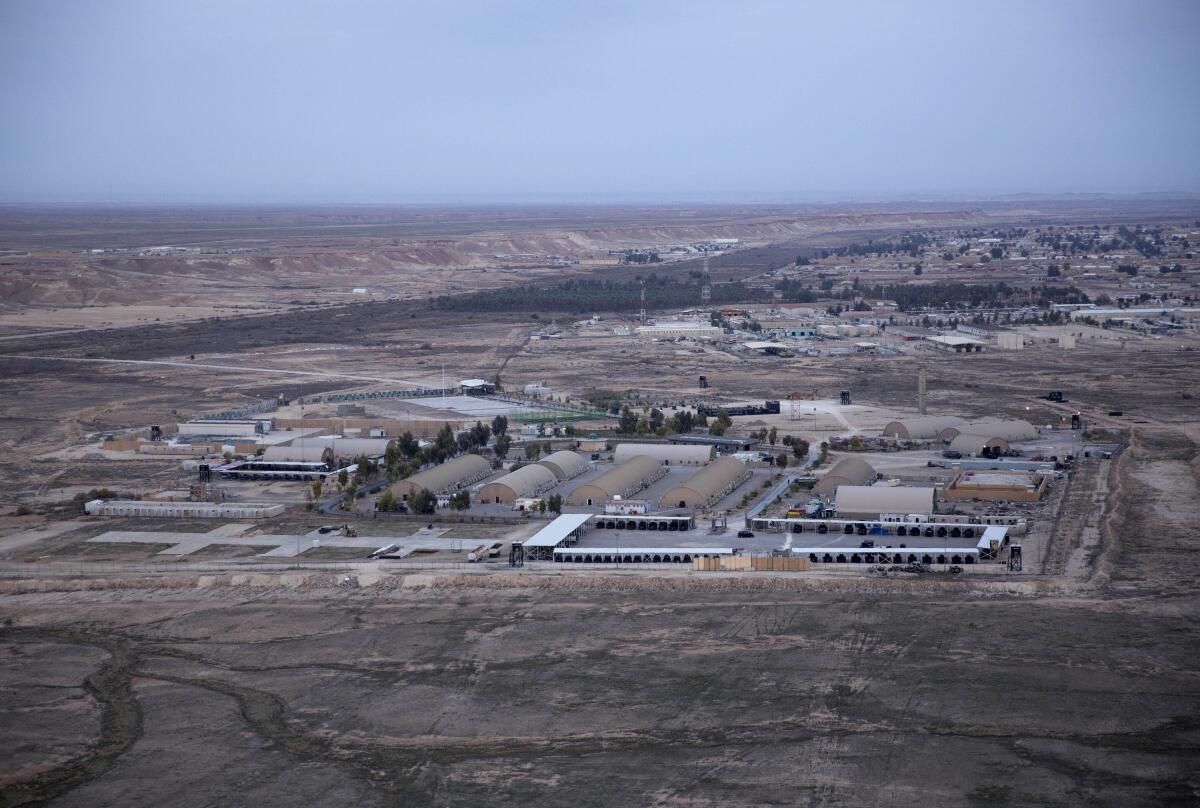U.S. injury count from Iranian missile strike rises to 64, Pentagon says

- Share via
At least 64 U.S. military personnel in Iraq suffered brain trauma in an Iranian missile attack launched in retaliation after President Trump ordered the killing of an Iranian general.
The 64 service members — 14 more than previously reported — have been diagnosed with mild traumatic brain injuries, Lt. Col. Thomas Campbell, a Defense Department spokesman, said in a statement on Thursday night. Of those, 39 have returned to duty; at least 21 have gone to Germany for “further evaluation and treatment.”
“We’ll continue to monitor them the rest of their lives, actually, and continue to provide whatever treatment is necessary,” Gen. Mark Milley, chairman of the Joint Chiefs of Staff, said in the statement.
Trump initially minimized the fallout after Iran fired more than a dozen guided missiles at two bases in Iraq on Jan. 8.
The attack came less than a week after the killing in Baghdad of Qassem Suleimani, a leader of Iran’s Islamic Revolutionary Guard. The missiles struck deserted parts of the sprawling Asad Air Base in Anbar province and another base near Irbil. No casualties were initially reported.
“Iran appears to be standing down,” Trump said afterward. “Which is a good thing for all parties concerned and a very good thing for the world.”
Two weeks later, he acknowledged that some Americans had been hurt in the attacks. “I heard they had headaches,” the president told reporters during a news conference at the conclusion of a two-day trip to the World Economic Forum in Davos, Switzerland. “I can report it’s not very serious.”
The Veterans of Foreign Wars later said in a statement that it “expects an apology from the president to our service men and women for his misguided remarks.”
Trump ordered the drone strike that killed Suleimani after an American contractor died in a rocket attack on an Iraqi base in Kirkuk in late December.
In the Pentagon statement Thursday night, Defense Secretary Mark Esper said the department “is a leading contributor in the treatment and research of brain-related trauma.”
“We do everything we can to identify, treat and help our service members recover and return to duty,” he added.
More to Read
Sign up for Essential California
The most important California stories and recommendations in your inbox every morning.
You may occasionally receive promotional content from the Los Angeles Times.













